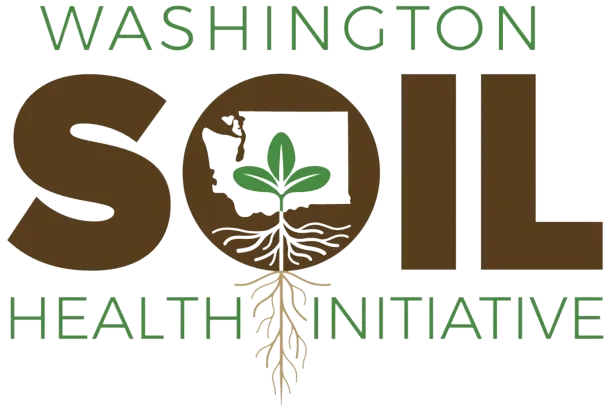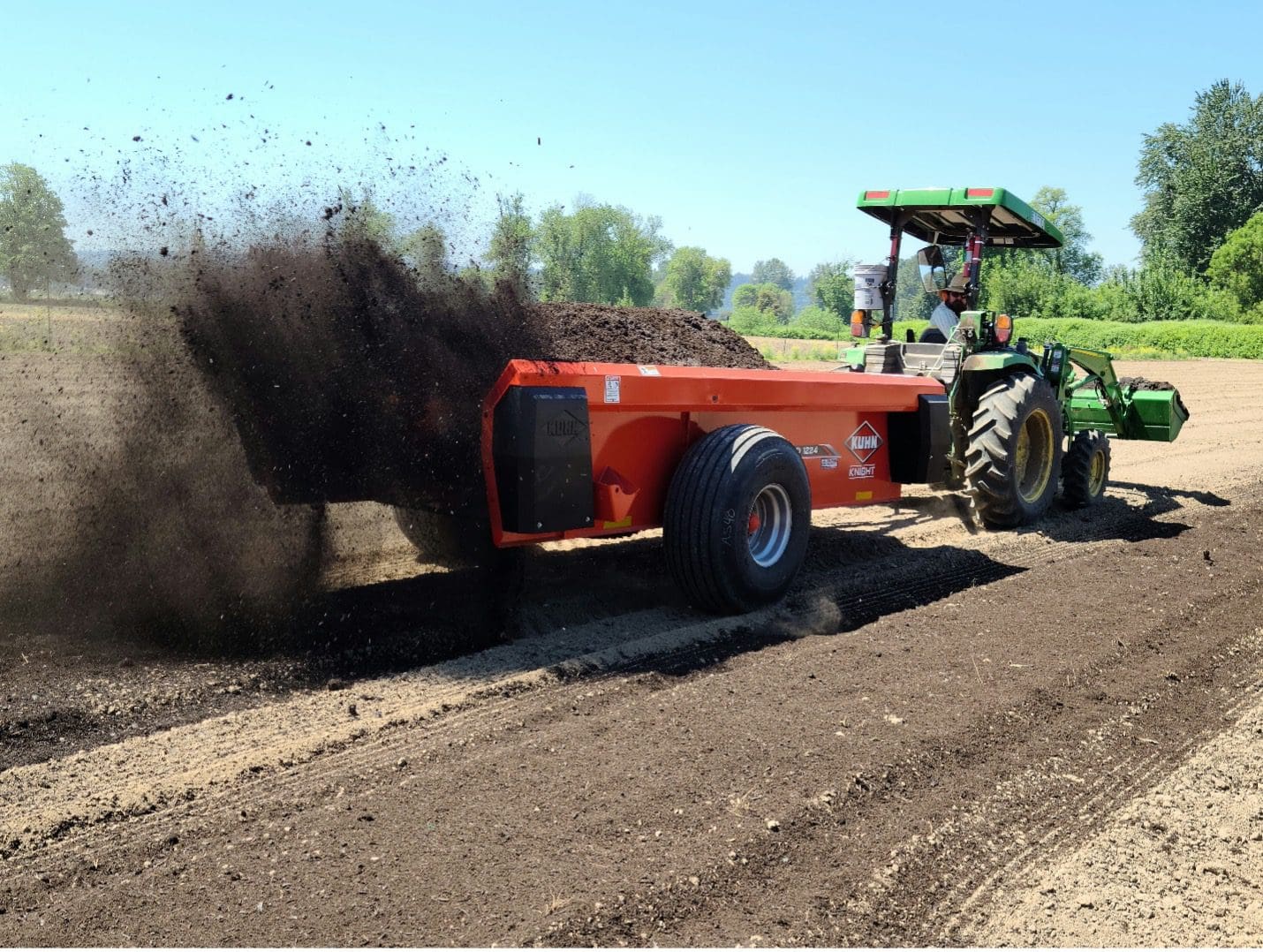
©
Where the Magic Happens
Climate-Smart Practices Funded through Sustainable Farms and Fields Program
September 19, 2023
Author: Karen Hills
Finding co-benefits of climate-smart practices
I recently wrote a WaSHI blog post announcing that Sustainable Farms and Fields (SFF) had launched. This innovative program housed in the Washington State Conservation Commission helps Conservation Districts and other public entities implement practices that are “climate-smart,” or in other words, sequester carbon in soil or vegetation and/or reduce emissions of greenhouse gases.
This is one of only a handful of state programs in the U.S. helping agricultural producers be part of the climate solution and achieve co-benefits such as improving soil health. The first fiscal year of funding was actually compressed with those receiving awards having roughly 6 months to complete the proposed work.
Even with that challenging deadline, the conservation districts and one county government (King County) that received funding hit the ground running and put some great projects on the ground.
A diversity of projects
Here’s a snapshot of what was accomplished using SFF funding to fund 50 projects during Fiscal Year 2023.
Equipment sharing
Many CDs purchased shared equipment using these funds, including manure and compost spreaders, no-till drills, and even a roller crimper for terminating cover crops. Programs that rent equipment to producers are relatively common among conservation districts and allow a “try before you buy” approach to be taken by those interested in adopting a new practice or allow those with smaller operations to access equipment that may not be affordable at a small scale. CDs are estimating that 200 producers per year will use the various pieces of rental equipment purchased through SFF to implement climate-smart practices on around 3,000 acres.

Technical Assistance
Another key category of SFF funding is technical assistance. Through technical assistance, CDs were able to work with individual producers to assess opportunities to store carbon or reduce GHG emissions on their operations. This assistance is a crucial first step in engaging producers in voluntary conservation of any type. Conservation district staff are trained to identify resource concerns and work with producers on a plan to address those concerns, while establishing a relationship of trust. During fiscal year 2023, 451 producers managing approximately 185,000 acres received technical assistance thanks to an SFF funding.
Cost Share
Where the rubber hits the road for any conservation program is getting best management practices implemented on the ground. For SFF this occurs through cost share (projects where the producer puts in an agreed upon percentage of the cost of a project, while the rest is funded through a grant or other funding source) or funding of materials and supplies directly purchased by the district for use in helping producers implement climate-smart practices. There was great variation in how these funds were used was about as great as the variation in Washington’s agricultural systems.
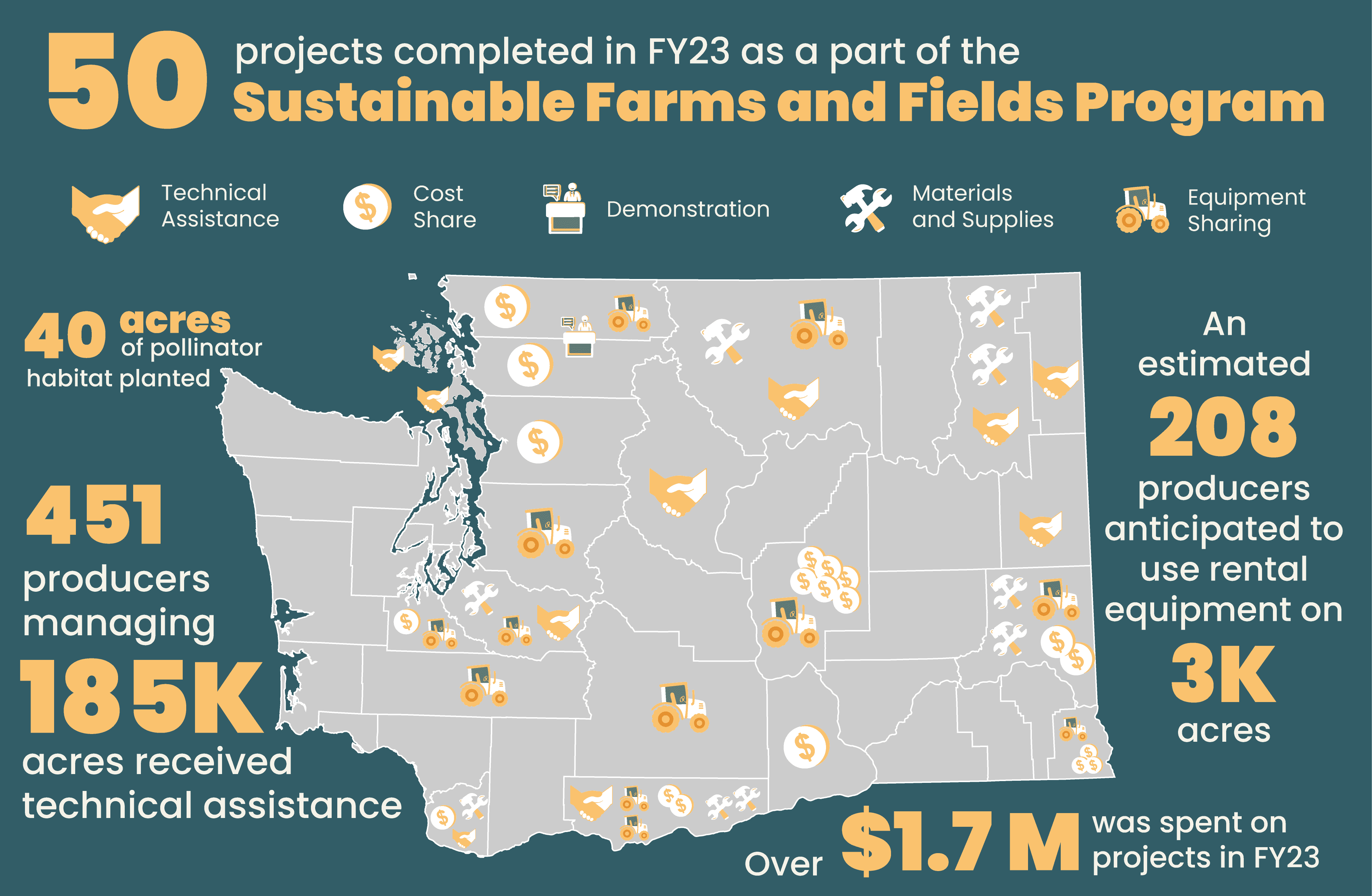
The list of projects is too long to mention them all, but here are some examples of SFF funded projects:
- Producers purchase GPS units for precision agriculture reducing overlap in tractor passes on the field;
- plantings of trees or shrubs on farms.
- Producers in Klickitat, Pierce, Whatcom, Clark, and Whitman counties tried cover cropping through SFF funding;
- Stevens County CD worked with a number of partners on a project to apply biochar on a large scale to agricultural lands;
- manure separators were installed on farms where manure is stored in lagoons, reducing methane emissions to the atmosphere and aiding in lagoon storage capacity.
In addition, Snohomish CD and San Juan Islands CD took the lead at development of a carbon farm planning template, which will be shared with other districts for comment in the fall so that it can be further refined and deployed for use in future technical assistance. SCC provided soil health testing equipment to 27 interested CDs. We had SFF materials translated into Spanish to help communicate with some underserved producers.
More money for big-ticket projects
As we move forward into our second fiscal year of the program, we are excited about some new developments, the most notable of which is the $30 million in proviso funding that the legislature appropriated to SFF in the 2023-25 biennium. The bulk of this funding will go toward anaerobic digesters, but it will also allow funding of some “big ticket” manure management projects with a climate-smart focus (stay tuned for more details), and more traditional SFF projects.
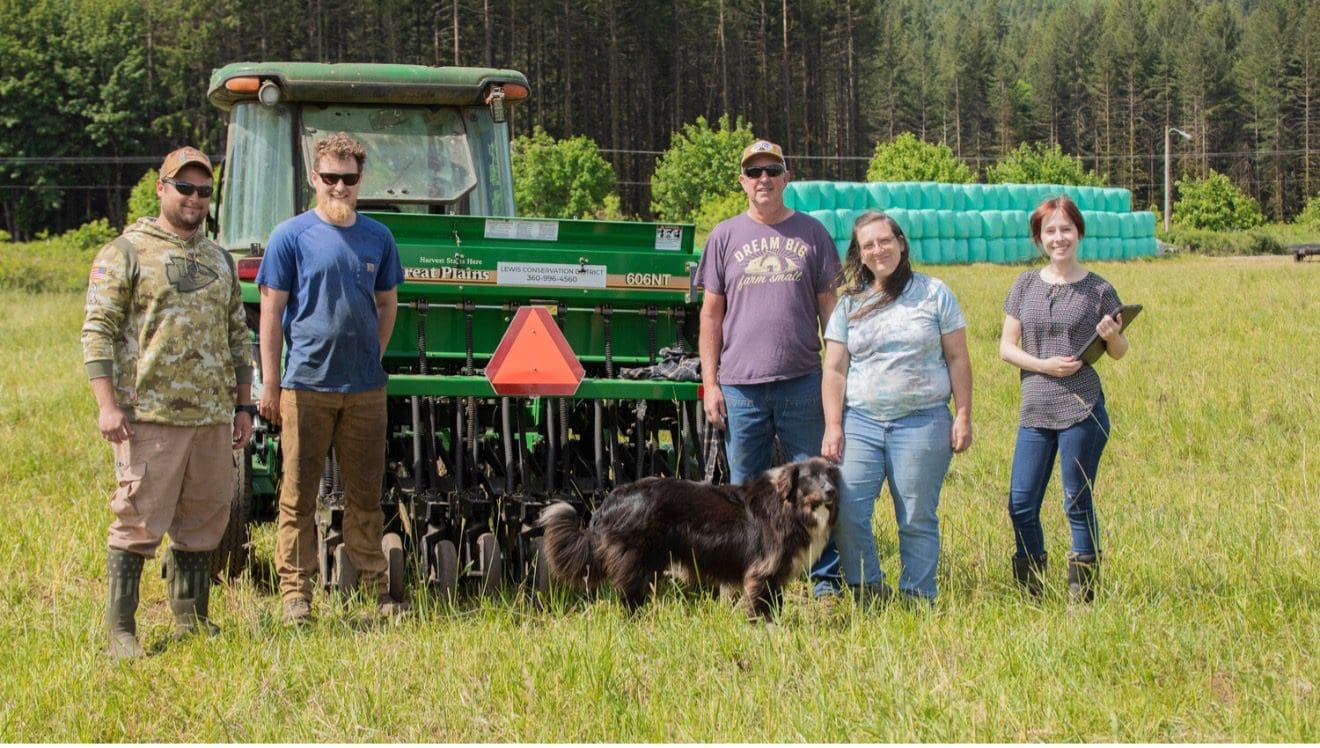
We’ve gone through one round of application review for FY 2024 and were able to fund 23 of the 67 applications, allocating all of the currently available funding. Stay tuned for more information on the release of further SFF funding, which we expect to occur in late 2023 or 2024. As we expected, the application process has gotten more competitive now that the word is out about SFF.
One of the challenges of managing this type of program (or most anything that is new) is that you don’t know what you don’t know. I’ve been fortunate to be surrounded by people willing to help get this exciting program launched and by those working on the ground with producers, maintaining those relationships of trust that allow for the “magic” of voluntary conservation to occur.
For more information on Sustainable Farms and Fields, visit https://www.scc.wa.gov/programs/sustainable-farms-fields or contact program manager Karen Hills: khills@scc.wa.gov
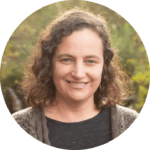
Karen Hills
Sustainable Farms and Fields Program Manager, Washington State Conservation Commission
This article was published by the Washington Soil Health Initiative. For more information, visit wasoilhealth.org. To have these posts delivered straight to your inbox, subscribe to the WaSHI newsletter. To find a soil science technical service provider, visit the Washington State University Extension website or the Washington State Conservation District website.

